Editor’s note: The following is excerpted from Beacon Lights of History, by John Lord (published 1902)
It is difficult to say anything new about Napoleon Bonaparte, either in reference to his genius, his character, or his deeds.
His genius is universally admitted, both as a general and an administrator. No general so great has appeared in our modern times. He ranks with Alexander and Caesar in ancient times, and he is superior to Gustavus Adolphus, Turenne, Conde, Marlborough, Frederic II., Wellington, or any of the warriors who have figured in the great wars of Europe, from Charlemagne to the battle of Waterloo. His military career was so brilliant that it dazzled contemporaries. Without the advantages of birth or early patronage, he rose to the highest pinnacle of human glory. His victories were prodigious and unexampled; and it took all Europe to resist him. He aimed at nothing less than universal sovereignty; and had he not, when intoxicated with his conquests, attempted impossibilities, his power would have been practically unlimited in France. He had all the qualities for success in war,–insight, fertility of resource, rapidity of movement, power of combination, coolness, intrepidity, audacity, boldness tempered by calculation, will, energy which was never relaxed, powers of endurance, and all the qualities which call out enthusiasm and attach soldiers and followers to personal interests. His victorious career was unchecked until all the nations of Europe, in fear and wrath, combined against him. He was a military prodigy, equally great in tactics and strategy,–a master of all the improvements which had been made in the art of war, from Epaminondas to Frederic II.
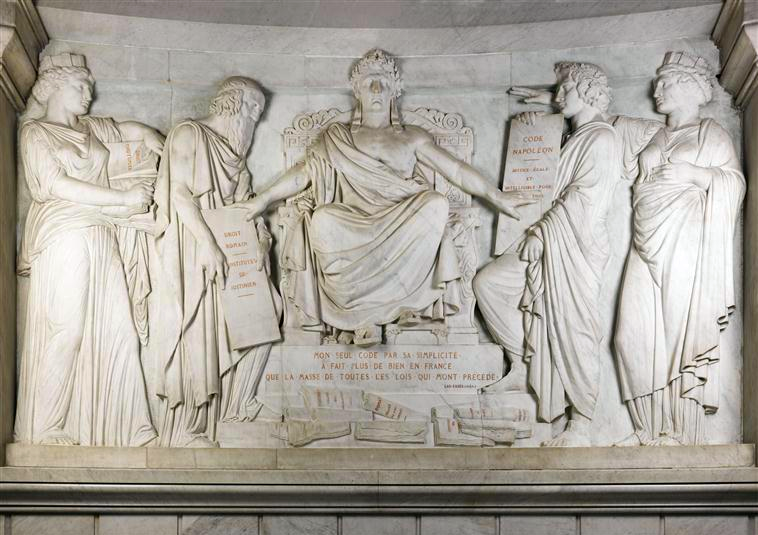
His genius for civil administration was equally remarkable, and is universally admitted. Even Metternich, who detested him, admits that “he was as great as a statesman as he was as a warrior, and as great as an administrator as he was as a statesman.” He brought order out of confusion, developed the industry of his country, restored the finances, appropriated and rewarded all eminent talents, made the whole machinery of government subservient to his aims, and even seemed to animate it by his individual will. He ruled France as by the power of destiny. The genius of Richelieu, of Mazarin, and of Colbert pale before his enlightened mind, which comprehended equally the principles of political science and the vast details of a complicated government. For executive ability I know no monarch who has surpassed him.
We do not associate with military genius, as a general rule, marked intellectual qualities in other spheres. But Napoleon was an exception to this rule. He was tolerably well educated, and he possessed considerable critical powers in art, literature, and science. He penetrated through all shams and impostures. He was rarely deceived as to men or women. He could be eloquent and interesting in conversation. Some of his expressions pierced like lightning, and were exceedingly effective. His despatches were laconic and clear. He knew something about everybody of note, and if he had always been in a private station his intellectual force would have attracted attention in almost any vocation he might have selected. His natural vivacity, wit, and intensity would have secured friends and admirers in any sphere.
Nor are the judgments of mankind less unanimous in reference to his character than his intellect and genius. He stands out in history in a marked manner with two sides,–great and little, good and bad. None can deny him many good qualities. His industry was marvellous; he was temperate in eating and drinking; he wasted no precious time; he rewarded his friends, to whom he was true; he did not persecute his enemies unless they stood in his way, and unless he had a strong personal dislike for them, as he had for Madame de Stael; he could be magnanimous at times; he was indulgent to his family, and allowed his wife to buy as many India shawls and diamonds as she pleased; he was never parsimonious in his gifts, although personally inclined to economy; he generally ruled by the laws he had accepted or enacted; he despised formalities and etiquette; he sought knowledge from every quarter; he encouraged merit in all departments; he was not ruled by women, like most of the kings of France; he was not enslaved by prejudices, and was lenient when he could afford to be; and in the earlier part of his career he was doubtless patriotic in his devotion to the interests of his country.
Moreover, many of his faults were the result of circumstances, and of the unprecedented prosperity which he enjoyed. Pride, egotism, tyranny, and ostentation were to be expected of a man whose will was law. Nearly all men would have exhibited these traits, had they been seated on such a throne as his; and almost any man’s temper would have occasionally given way under such burdens as he assumed, such hostilities as he encountered, and such treasons as he detected. Surrounded by spies and secret enemies, he was obliged to be reserved. With a world at his feet, it was natural that he should be arbitrary and impatient of contradiction. There have been successful railway magnates as imperious as he, and bank presidents as supercilious, and clerical dignitaries as haughty, in their smaller spheres. Pride, consciousness, and egotism are the natural result of power and flattery in all conditions of life; and when a single man controls the destinies of nations, he is an exception to the infirmities of human nature if he does not seek to bend everything before his haughty will. There have been many Richelieus, there has been but one Marcus Aurelius; many Hildebrands, only one Alfred; many Ahabs, only one David, one St. Louis, one Washington.
But with all due allowance for the force of circumstances in the development of character, and for those imperial surroundings which blind the arbiters of nations, there were yet natural traits of character in Napoleon which call out the severest reprobation, and which make him an object of indignation and intense dislike among true-minded students of history. His egotism was almost superhuman, his selfishness was most unscrupulous, his ambition absolutely boundless. He claimed a monopoly in perfidy and lying; he had no idea of moral responsibility; he had no sympathy with misfortune, no conscience, no fear of God. He was cold, hard, ironical, and scornful. He was insolent in his treatment of women, brusque in manners, severe on all who thwarted or opposed him. He committed great crimes in his ascent to supreme dominion, and mocked the reason, the conscience, and the rights of mankind. He broke the most solemn treaties; he was faithless to his cause; he centred in himself the interests he was intrusted to guard; he recklessly insulted all the governments of Europe; he put himself above Providence; he disgracefully elevated his brothers; he sought to aggrandize himself at any cost, and ruthlessly grasped the sceptre of universal dominion as if he were an irresistible destiny whom it was folly to oppose, In all this he aimed to be greater than conscience.
Such was the character of a despot who arose upon the ruins of the old monarchy,–the product of a revolution, whose ideas he proposed to defend. Most historians, and all moralists, are on the whole unanimous in this verdict. As for his deeds, they rise up before our minds, compelling admiration and awe. He was the incarnation of force; he performed the most brilliant exploits of our modern times.
The question then arises, whether his marvellous gifts and transcendent opportunities were directed to the good of his country and the cause of civilization. In other words, did he render great services to France, which make us forget his faults? How will he be judged by enlightened posterity? May he be ranked among great benefactors, like Constantine. Charlemagne, Theodosius, Peter the Great, and Oliver Cromwell? It is the privilege of great sovereigns to be judged for their services rather than by their defects.
Let us summon, then, this great Emperor before the bar of universal reason. Let him make his own defence. Let us first hear what he has to say for himself, for he is the most distinguished culprit of modern times, and it may yet take three generations to place him in his true historical niche; and more, his fame, though immortal, may forever be in doubt, like that of Julius Caesar, whom we still discuss.
This great man may quietly yet haughtily say to us who seek to take his measure: “It is for my services to France that I claim to be judged. I do not claim perfection. I admit I made grand mistakes; I even committed acts which the world stigmatizes as crimes. I seized powers which did not belong to me; I overthrew constitutions; I made myself supreme; I mocked the old powers of earth; I repudiated the ideas in the name of which I climbed to a throne; I was harsh, insolent, and tyrannical; I divorced the wife who was the maker of my fortune; I caused the assassination of the Duc d’Enghien; I invaded Spain and Russia; and I wafted the names of my conquering generals to the ends of the earth in imprecations and curses. These were my mistakes,–crimes, if you please to call them; but it is not for these you must judge me. Did I not come to the rescue of law and order when France was torn with anarchies? Did I not deliver the constituted authorities from the mob? Did I not rescue France from foreign enemies when they sought to repress the Revolution and restore the Bourbons? Was I not the avenger of twenty-five hungry millions on those old tyrants who would have destroyed their nationality? Did I not break up those combinations which would have perpetuated the enslavement of Europe? Did I not seek to plant liberty in Italy and destroy the despotisms of German princes? Did I not give unity to great States and enlarge their civilization? Did I not rebuke and punish Austria, Prussia, Russia, and England for interfering with our Revolution and combining against the rights of a republic? Did I not elevate France, and give scope to its enterprise, and develop its resources, and inspire its citizens with an unknown enthusiasm, and make the country glorious, so that even my enemies came to my court to wonder and applaud? And did I not leave such an immortal prestige, even when I was disarmed and overthrown by the armies of combined Christendom, that my illustrious name, indelibly engraved in the hearts of my countrymen, was enough to seat my nephew on the throne from which I was torn, and give to his reign a glory scarcely inferior to my own? These were my services to France,–the return of centralized power amid anarchies and discontents and laws which successive revolutions have not destroyed, but which shall blaze in wisdom through successive generations.”
Now, how far can these claims be substantiated? Was Napoleon, although a usurper, like Cromwell and Caesar, also a benefactor like them; and did his fabric of imperialism prove a blessing to civilization? What, in reality, were his services? Do they offset his aspirations and crimes? Is he worthy of the praises of mankind? Great deeds he performed, but did they ultimately tend to the welfare of France and of Europe?
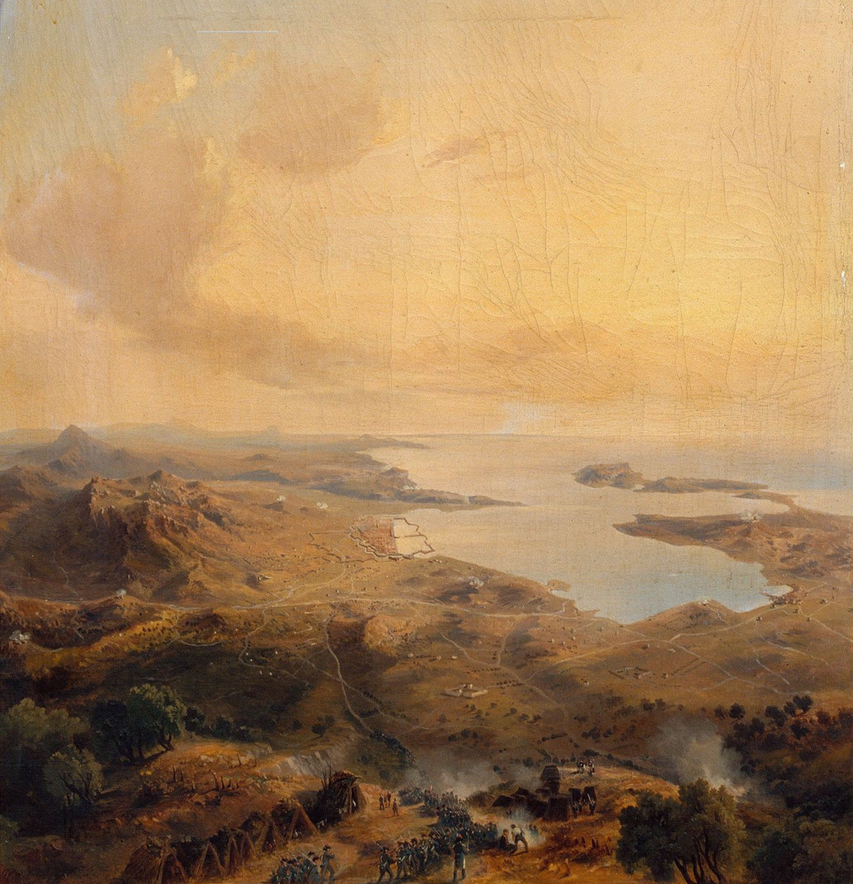
It was a great service which Napoleon rendered to France, in the beginning of his career, at the siege of Toulon, when he was a lieutenant of artillery. He disobeyed, indeed, the orders of his superiors, but won success by the skill with which he planted his cannon, showing remarkable genius. This service to the Republic was not forgotten, although he remained long unemployed, living obscurely at Paris with straitened resources. By some means he caught the ear of Barras, the most able of the Directory, and was intrusted with the defence of the Convention in a great crisis, and saved it by his “whiff of grapeshot,” as Carlyle calls his dispersion of the mob in the streets of Paris, from the steps of St. Roch. This, doubtless, was a service to the cause of law and order, since he acted under orders, and discharged his duty, like an obedient servant of the constituted authorities, without reluctance, and with great skill,–perhaps the only man of France, at that time, who could have done that important work so well, and with so little bloodshed. Had the sections prevailed,–and it was feared that they would,–the anarchy of the worst days of the Revolution would have resulted. But this decisive action of the young officer, intrusted with a great command, put an end for forty years to the assumption of unlawful weapons by the mob. There was no future insurrection of the people against government till Louis Philippe was placed upon the throne in 1830. Napoleon here vindicated not only the cause of law and order, but the Revolution itself; for in spite of its excesses and crimes, it had abolished feudalism, unequal privileges, the reign of priests and nobles, and a worn-out monarchy; it had proclaimed a constitutional government, in the face of all the European despotisms; it had asserted that self-government was a possibility, even in France; it had inspired the whole nation with enthusiasm, and proclaimed the Republic when hostile armies were ready to march upon the soil of France and restore the Bourbons. All the impulses of the Revolution were generous; all its struggles were heroic, although it was sullied with crimes, and was marked by inexperience and follies. The nation rallied around a great idea,–an idea which is imperishable, and destined to unbounded triumph. To this idea of liberty Napoleon was not then unfaithful, although some writers assert that he was ready to draw his sword in any cause which promised him promotion.
The National Convention, which he saved by military genius and supreme devotion to it, had immortalized itself by inspiring France with heroism; and after a struggle of three years with united Christendom, jealous of liberty, dissolved itself, and transferred the government to a Directory.
This Directory, in reward of the services which Napoleon had rendered, and in admiration of his genius, bestowed upon him the command of the army of Italy. Probably Josephine, whom he then married, had sufficient influence with Barras to secure the appointment. It was not popular with the generals, of course, to have a young man of twenty-six, without military prestige, put over their heads. But results soon justified the discernment of Barras.
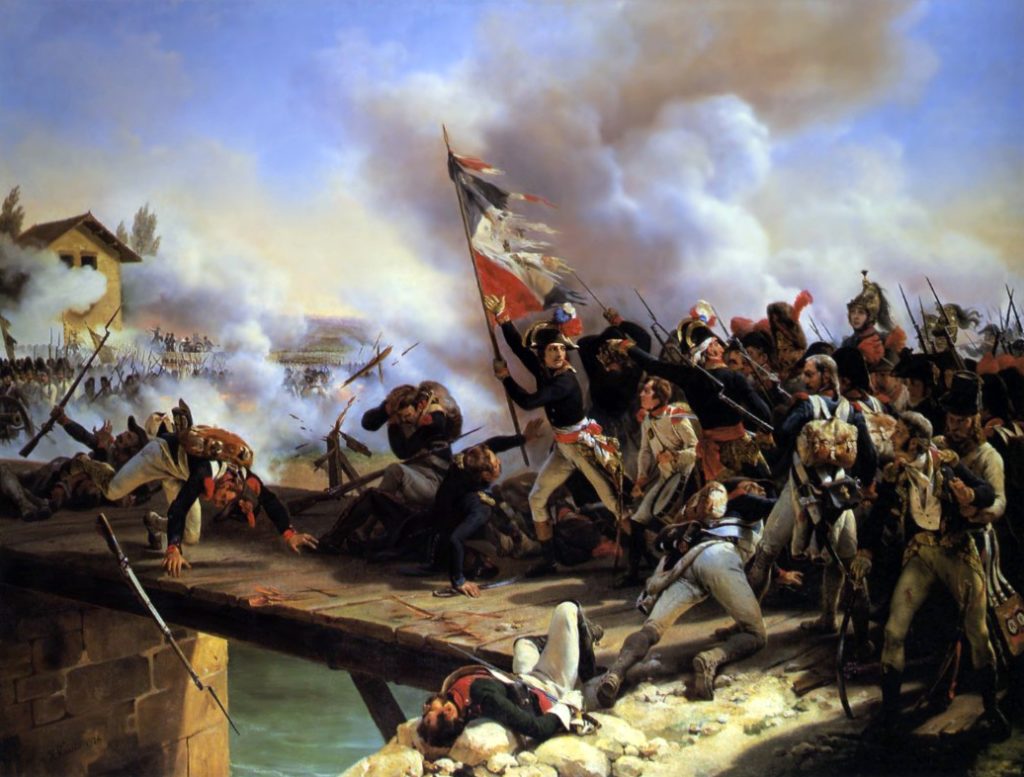
At the head of only forty thousand men, poorly clad and equipped and imperfectly fed, Napoleon in four weeks defeated the Sardinians, and in less than two years, in eighteen pitched battles, he destroyed the Austrian armies which were about to invade France. That glorious campaign of 1796 is memorable for the conquest of Piedmont and Lombardy, and the establishment of French supremacy in Italy. Napoleon’s career on the banks of the Po was so brilliant, unexpected, and startling, that his nation was filled with equal astonishment and admiration. Instead of predicted ruin, there was unexampled victory. The enthusiasm of the French was unbounded. Had Napoleon died at the Bridge of Lodi, he would have passed down in history as a Judas Maccabaeus. In this campaign he won the hearts of his soldiers, and secured the admiration of his generals. There was something new in his system of fighting, not seen at least in modern times,–a rapid massing of his troops, and a still more rapid concentration of them upon the weak points of the enemy’s lines, coming down on them like a mountain torrent, and sweeping everything before him, in defiance of all rules and precedents. A new master in the art of war, greater than Conde, or Turenne, or Marlborough, or Frederic II., had suddenly arisen, with amazing audacity and faith in himself.
The deliverance of republican France from four great Austrian armies was a grand service; and Napoleon merited its gratitude and all the honors he received. He had violated no trust thus far. He was still Citizen Bonaparte, professing liberal principles, and fighting under the flag of liberty, to make the Republic respected, independent, and powerful. He robbed Italy, it is true, of some of her valuable pictures, and exacted heavy contributions; but this is war. He was still the faithful servant of France.
On his return to Paris as a conqueror, the people of course were enthusiastic in their praises, and the Government was jealous. It had lost the confidence of the nation. All eyes were turned upon the fortunate soldier who had shown so much ability, and who had given glory to the country. He may not yet have meditated usurpation, but he certainly had dreams of power. He was bent on rising to a greater height; but he could do nothing at present, nor did he feel safe in Paris amid so much envy, although he lived simply and shunned popular idolatry. But his restless nature craved activity; so he sought and obtained an army for the invasion of Egypt. He was inspired with a passion of conquest, and the Directory was glad to get rid of so formidable a rival.
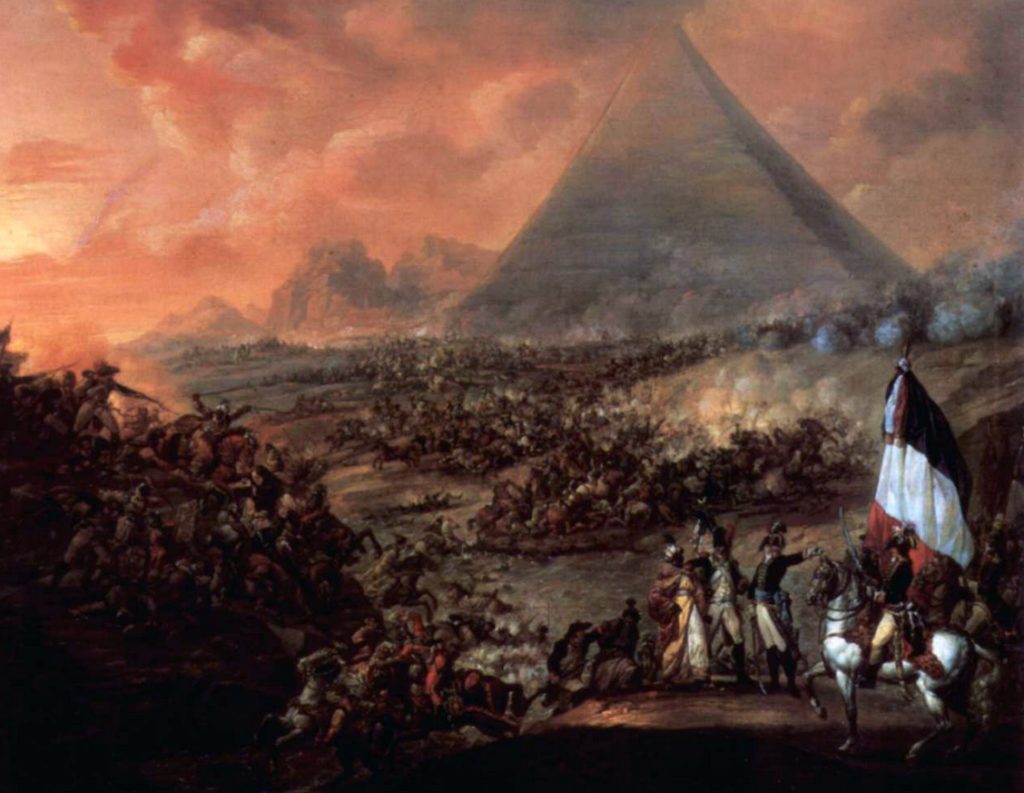
He had plainly rendered to his country two great services, without tarnishing his own fame, or being false to his cause. But what excuse had he to give to the bar of enlightened posterity for the invasion of Egypt? The idea originated with himself. It was not a national necessity. It was simply an unwarrantable war: it was a crime; it was a dream of conquest, without anything more to justify it than Alexander’s conquests in India, or any other conquest by ambitious and restless warriors. He hoped to play the part of Alexander,–to found a new empire in the East. It was his darling scheme. It would give him power, and perhaps sovereignty. Some patriotic notions may have blended with his visions. Perhaps he would make a new route to India; perhaps cut off the empire of the English in the East; perhaps plant colonies among worn-out races; perhaps destroy the horrid empire of the Turks; perhaps make Constantinople the seat of French influence and empire in the East. But what harm had Turkey or Syria or Egypt done to France? Did they menace the peace of Europe? Did even suffering Egyptians call upon him to free them from a Turkish yoke? No: it was a meditated conquest, on the same principles of ambition and aggrandizement which ever have animated unlawful conquests, and therefore a political crime; not to be excused because other nations have committed such crimes, ultimately overruled to the benefit of civilization, like the conquest of India by England, and Texas by the United States.
I will not dwell on this expedition, which failed through the watchfulness of the English, the naval victory of Nelson at the Nile, and the defence of Acre by Sir Sidney Smith. It was the dream of Napoleon at that time to found an empire in the East, of which he would be supreme; but he missed his destiny, and was obliged to return, foiled, baffled, and chagrined, to Paris;–his first great disappointment.
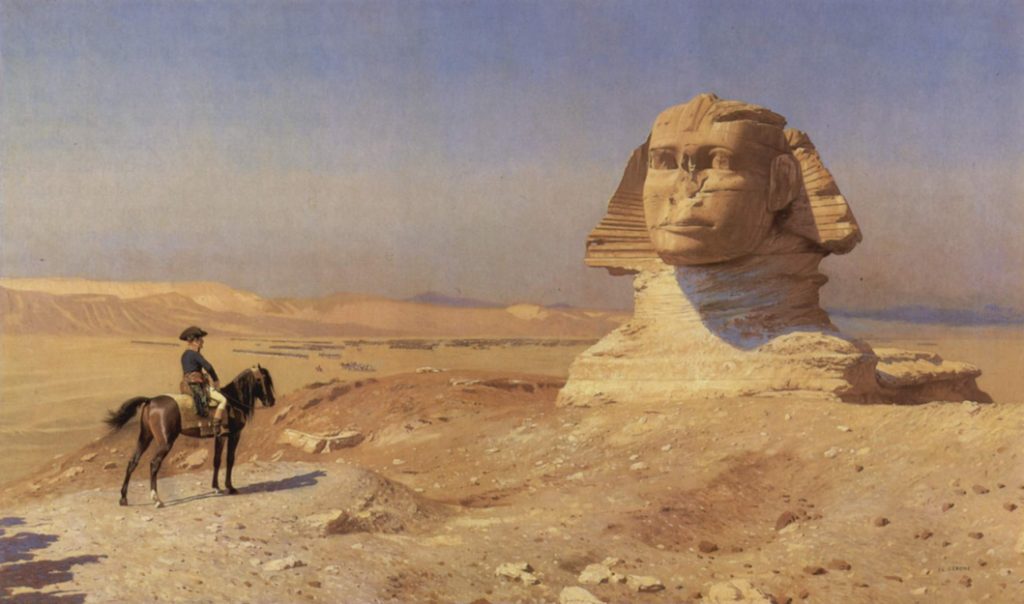
But he had lost no prestige, since he performed prodigies of valor, and covered up his disasters by lying bulletins. Here he first appeared as the arch-liar, which he was to the close of his career. In this expedition he rendered no services to his country or to civilization, except in the employment of scientific men to decipher the history of Egypt,–which showed that he had an enlightened mind.
During his absence disasters had overtaken France. Italy was torn from her grasp, her armies had been defeated, and Russia, Austria, and England were leagued for her overthrow. Insurrection was in the provinces, and dissensions raged in Paris. The Directory had utterly lost public confidence, and had shown no capacity to govern. All eyes were turned to the conqueror of Italy, and, as it was supposed, of Egypt also.
A coup d’etat followed. Napoleon’s soldiers drove the legislative body from the hall, and he assumed the supreme control, under the name of First Consul. Thus ended the Republic in November, 1799, after a brief existence of seven years. The usurpation of a soldier began, who trod the constitution and liberty under his iron feet. He did what Caesar and Cromwell had done, on the plea of revolutionary necessity. He put back the march of liberty for nearly half-a-century. His sole excuse was that his undeniable usurpation was ratified by the votes of the French people, intoxicated by his victories, and seeing no way to escape from the perils which surrounded them than under his supreme guidance. They parted with their liberties for safety. Had Napoleon been compelled to “wade through slaughter to his throne,”–as Caesar did, as Augustus did,–there would have been no excuse for his usurpation, except the plea of Caesar, that liberty was impossible, and the people needed the strong arm of despotism to sustain law and order. But Napoleon was more adroit; he appealed to the people themselves, recognizing them as the source of power, and they confirmed his usurpation by an overwhelming majority.
Since he was thus the people’s choice, I will not dwell on the usurpation. He cheated them, however; for he invoked the principles of the Revolution, and they believed him,–as they afterwards did his nephew. They wanted a better executive government, and were willing to try him, since he had proved his abilities; but they did not anticipate the utter suppression of constitutional government,–they still had faith in the principles of their Revolution. They abhorred absolutism; they abhor it still; to destroy it they had risked their Revolution. To the principles of the Revolution the great body of French people have been true, when permitted to be, from the time when they hurled Louis XVI. from the throne. Absolutism with the consent of the French nation has passed away forever, and never can be revived, any more than the oracles of Dodona or the bulls of Mediaeval popes.
Now let us consider whether, as the executive of the French nation, he was true to the principles of the Revolution, which he invoked, and which that people have ever sought to establish.
In some respects, it must be confessed, he was, and in other respects he was not. He never sought to revive feudalism; all its abominations perished. He did not bring back the law of entail, nor unequal privileges, nor the regime of nobles. He ruled by the laws; rewarding merit, and encouraging what was obviously for the interests of the nation. The lives and property of the people were protected. The idea of liberty was never ignored. If liberty was suppressed to augment his power and cement his rule, it was in the name of public necessity, as an expression of the interests he professed to guard. When he incited his soldiers to battle, it was always under pretence of delivering enslaved nations and spreading the principles of the Revolution, whose product he was. And until he assumed the imperial title most of his acts were enlightened, and for the benefit of the people he ruled; there was no obvious oppression on the part of government, except to provide means to sustain the army, without which France must succumb to enemies. While he was First Consul, it would seem that the hostility of Europe was more directed towards France herself for having expelled the Bourbons, than against him as a dangerous man. Europe could not forgive France for her Revolution,–not even England; Napoleon was but the necessity which the political complications arising from the Revolution seemed to create. Hence, the wars which Napoleon conducted while he was First Consul were virtually defensive, since all Europe aimed to put down France,–such a nest of assassins and communists and theorists!–rather than to put down Napoleon; for, although usurper, he was, strange to say, the nation’s choice as well as idol. He reigned by the will of the nation, and he could not have reigned without. The nation gave him his power, to be wielded to protect France, in imminent danger from foreign powers.
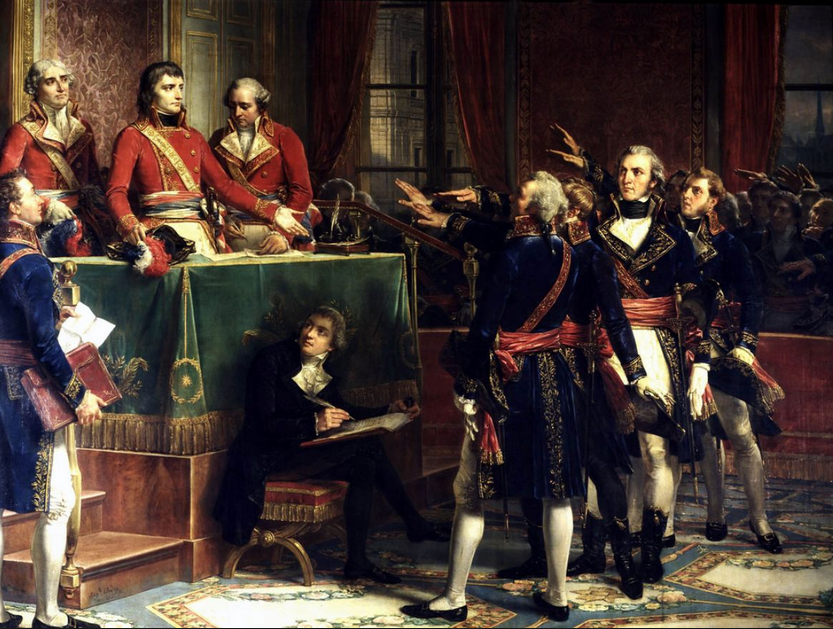
And wisely and grandly did he use it at first. He turned his attention to the internal state of a distracted country, and developed its resources and promoted tranquillity; he appointed the ablest men, without distinction of party, for his ministers and prefects; he restored the credit of the country; he put a stop to forced loans; he released priests from confinement; he rebuked the fanaticism of the ultra-revolutionists, he reorganized the public bodies; he created tribunals of appeal; he ceased to confiscate the property of emigrants, and opened a way for their return; he restored the right of disposing property by will; he instituted the Bank of France on sound financial principles; he checked all disorders; he brought to a close the desolating war of La Vendee; he retained what was of permanent value in the legislation of the Revolution; he made the distribution of the public burdens easy; he paid his army, and rewarded eminent men, whom he enlisted in his service. So stable was the government, and so wise were the laws, and so free were all channels of industry, that prosperity returned to the distracted country. The middle classes were particularly benefited,–the shopkeepers and mechanics,–and they acquiesced in a strong rule, since it seemed beneficent. The capital was enriched and adorned and improved. A treaty with the Pope was made, by which the clergy were restored to their parishes. A new code of laws was made by great jurists, on the principles of the Justinian Code. A magnificent road was constructed over the Alps. Colonial possessions were recovered. Navies were built, fortifications repaired, canals dug, and the beet-root and tobacco cultivated.
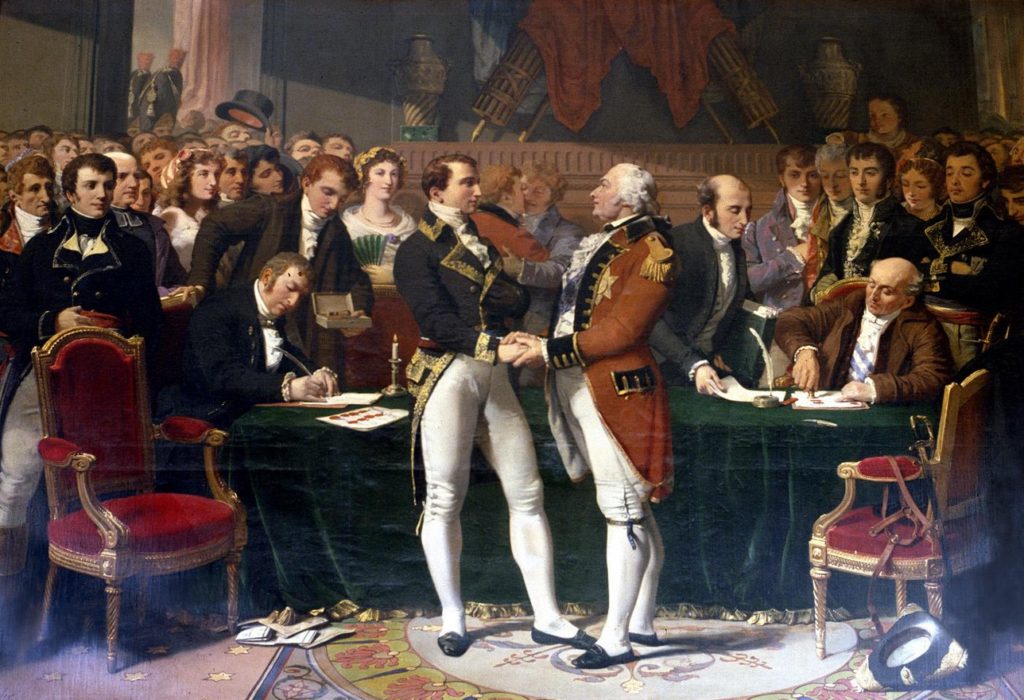
But these internal improvements, by which France recovered prosperity, paled before the services which Napoleon rendered as a defender of his country’s nationality. He had proposed a peace-policy to England in an autograph letter to the King, which was treated as an insult, and answered by the British government by a declaration of war, to last till the Bourbons were restored,–perhaps what Napoleon wanted and expected; and war was renewed with Austria and England. The consulate was now marked by the brilliant Italian campaign,–the passage over the Alps; the battle of Marengo, gained by only thirty thousand men; the recovery of Italy, and renewed military eclat. The Peace of Amiens, October, 1801, placed Napoleon in the proudest position which any modern sovereign ever enjoyed. He was now thirty-three years of age,–supreme in France, and powerful throughout Europe. The French were proud of a man who was glorious both in peace and war; and his consulate had been sullied by only one crime,–the assassination of the heir of the house of Conde; a blunder, as Talleyrand said, rather than a crime, since it arrayed against him all the friends of Legitimacy in Europe.

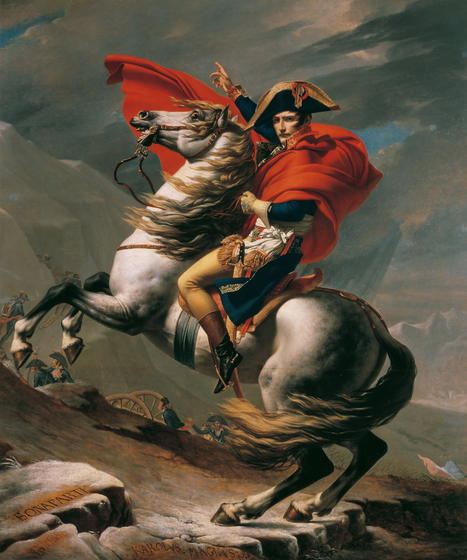


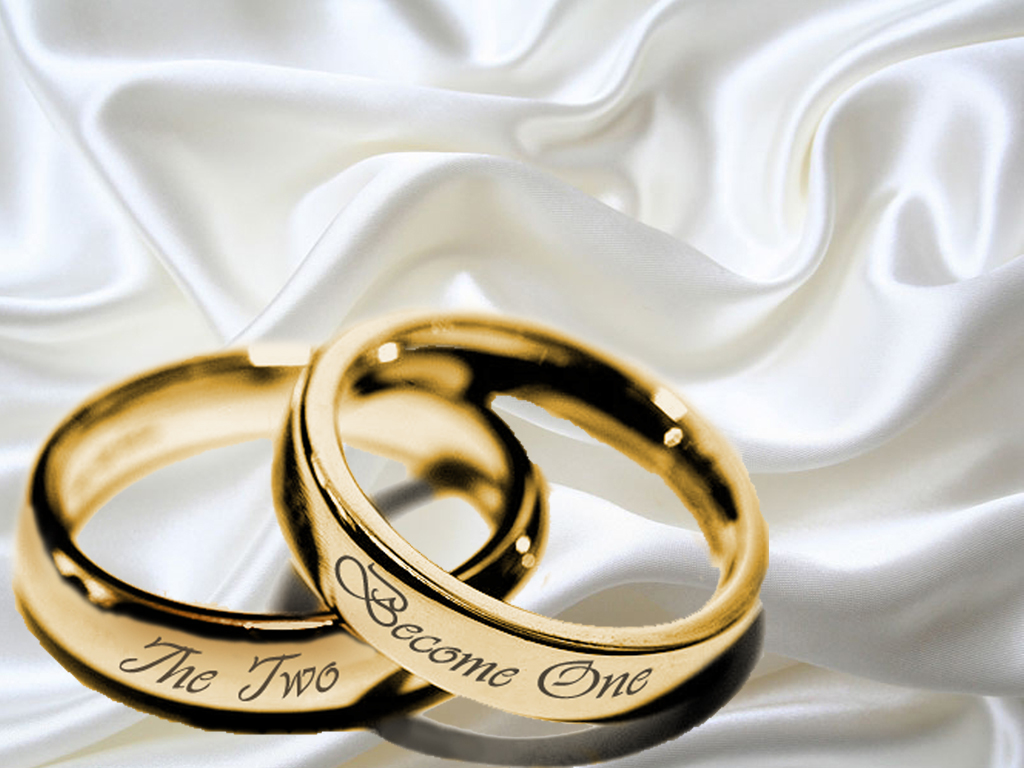
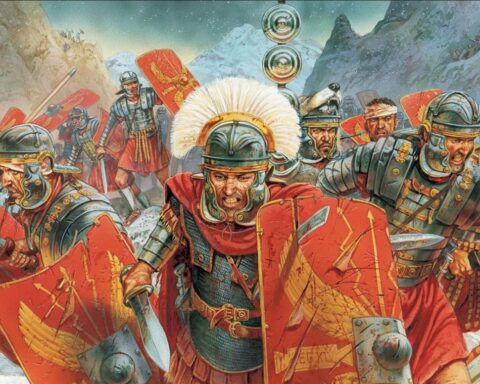
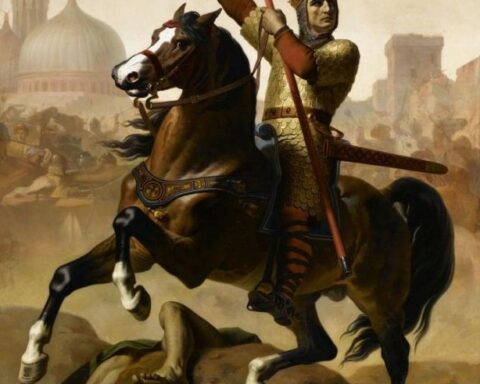


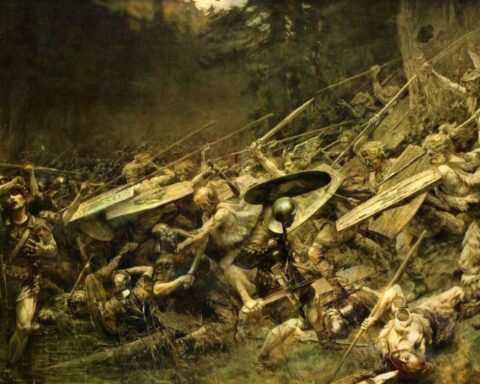
[…] Source link […]
[…] Continued from Part 1 […]
[…] Continued from Part 1 […]